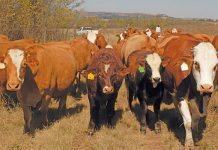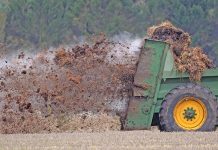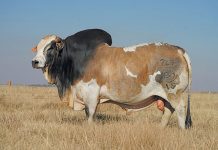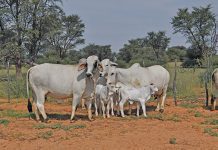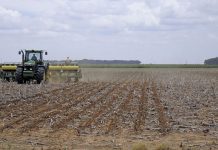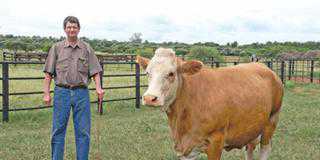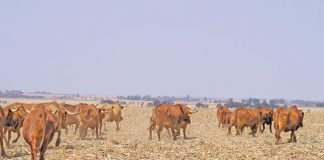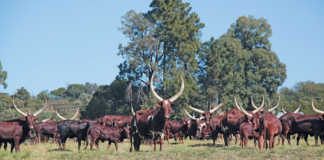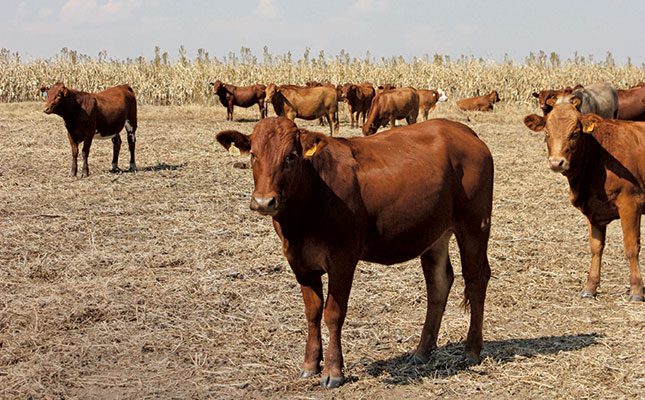
Photo: FW Archive
The Eastern Cape Red Meat Producers’ Organisation (EC RPO) has held meetings with relevant role players on the status of the foot-and-mouth-disease (FMD) outbreak in the province.
An industry expert, Dr Shaun Morris, has also been consulted with regards to practical advice to limit the spread of the disease.
Two adjoining properties near Humansdorp and an associated farm in the Zuurveld area have confirmed FMD cases, while a non-related farm 28km west of the initial infected farm was also confirmed as a positive FMD case.
EC RPO confirmed that more than 140 animals had tested positive. Movement control has been placed on all cloven-hoofed animals into, within, through and out of the Kouga and Koukamma municipalities, whereby:
- Only cloven-hoofed animals being moved from one farm within Kouga Municipality directly to an abattoir for slaughter will be allowed;
- Farms falling within a 10km radius of an infected farm are to be bled and have a negative serological result before any movements will be allowed from these farms;
- With regards to the movement of bull calves: where calves from more than one farm are transported together, this will only be allowed if the calves are transported by the farmer to the main road where they can be loaded onto the vehicle; and
- No cloven-hoofed animals originating in the Kouga and Koukamma municipalities are to be moved to other farms within or outside these municipalities until further notice.
Biosecurity
It is the landowner’s responsibility to ensure that strict biosecurity measures are in place and adhered to:
- Lock the farm gates and limit visitors (by appointment only) and deliveries to the property. Arrange meetings with agents and other parties off-farm;
- Any livestock trucks allowed onto the farm must be cleaned on arrival and sprayed and disinfected on entry and exit. When loading calves, no trucks must be allowed onto the property. The truck must park on the main road and animals must be transported by bakkie to the truck. Workers assisting with the loading should be properly sanitised and should receive a clean set of clothes/overalls and shoes before they re-enter the farm. It is best to not load calves on a property or to allow a truck to enter your property;
- Do not split loads between farms;
- Do not walk cattle in areas where trucks and vehicles drive. The farm must have designated areas and routes for vehicles to prevent contact with animals and manure.
- Should this not be possible, excess manure should be cleared from these areas and the area sprayed with a sanitising solution;
- Any person entering the farm should use a footbath and sanitise their hands;
Workers who return from leave must have a clean set of clothes; - Workers working with animals should be supplied with a plastic apron and a 2% citric acid solution to use in between working with one animal and another animal; and
- Be vigilant and report clinical signs immediately to the state veterinarian or a private veterinarian. Clinical signs include salivating, drop in milk, lameness, ulcers in the mouth and sores on the tongue.
- Farmers who are unsure of clinical signs are welcome to send pictures to Agri EC’s 24-hours coordination centre, which may be contacted on 060 997 4503, or by email on [email protected] or [email protected]. Phone the RPO on 012 349 1102/3 or email [email protected].

